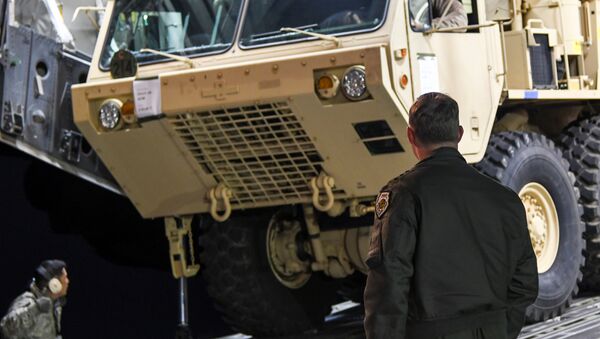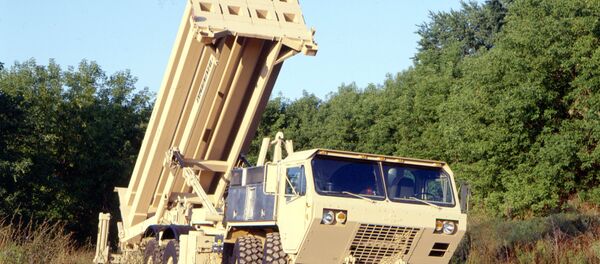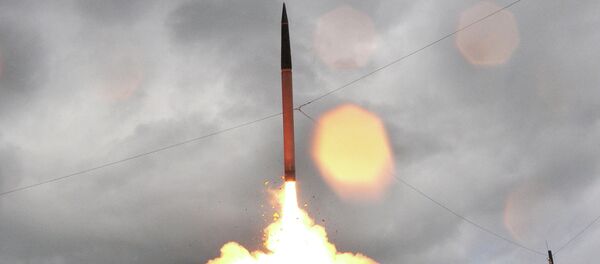Having deployed the US-operated Terminal High Altitude Area Defense (THAAD) syste on its territory, South Korea turns itself into a hostage to any potential conflict between Washington and Beijing, Russian military expert Vasily Kashin told Sputnik.
"It is probable that in the event of a military conflict between the US and the People's Republic of China an attack would be launched against the THAAD system, regardless of the position South Korea will take. It is possible that the attempt to declare neutrality on the part of [Seoul] won't work. Most likely the attack would be carried out with either ground-based or air-launched cruise missiles. Most probably, the strike would be so massive that the South Korean air defense system wouldn't withstand it," Kashin suggested, commenting on the issue.
On the other hand, China's ground-based missile systems are also capable of reaching and destroying South Korean targets. As a result, the THAAD would be destroyed, or the US military would have to permanently change its location and avoid using its radar station.
According to Kashin, it is unclear why Seoul is seeking to deploy the American system on its territory given the fact that it can provoke a blowback from China.
The deployment of the THAAD won't ensure South Korea's security, quite the opposite, the Russian military expert remarked.
Kashin pointed out that the THAAD system will be powerless against short-range missiles. That means that, in addition to the US-made anti-ballistic missile system, Seoul will have to deploy a number of Korean-operated defense systems aimed at tackling this threat.
"South Korea has found itself in an awkward position amid the gradual increase in tension between the US and China," he noted.
Meanwhile, reports emerged that Seoul has started to deploy the much discussed anti-ballistic missile systems on its territory.
Reuters reported Monday that the US deployment of the advanced missile defense system to South Korea is underway. According to the media outlet, the White House dubbed it "part of steps to bolster [South Korea's] ability to defend against North Korean ballistic missiles."
"The Trump administration is taking steps to enhance our ability to defend against North Korea's ballistic missiles such as through the deployment of a THAAD battery to South Korea," White House spokesman Sean Spicer told journalists.
On March 7, a representative of the US Armed Forces in South Korea told Sputnik that on late Monday (GMT +09:00) the THAAD units arrived at the airbase in Osang, Gyeonggi-do province.
However, according to the source, the ongoing deployment has nothing to do with the White House's recent statement.
When asked by Sputnik Korea what specific parts of the system had arrived and where they are currently stored, the US military representative responded that for security reasons these detailed couldn't be disclosed.
He underscored that the system had been delivered in accordance with the agreement struck by Seoul and Washington in July 2016 and has nothing to do with Spicer's statement.
For its part, China signaled its discontent with the developments.
"In the end, China has not been able to prevent THAAD from being set up in South Korea, but this was predicted by most observers at the beginning," the Global Times wrote.
"In the subsequent games, Beijing will step by step make South Korea feel the pain and make the US realize its mistake," it added.
"The most essential task for China now is to boost its military power. The THAAD installation has offered China a crucial reason to increase and improve its tactical nuclear weapons," the media outlet highlighted.



